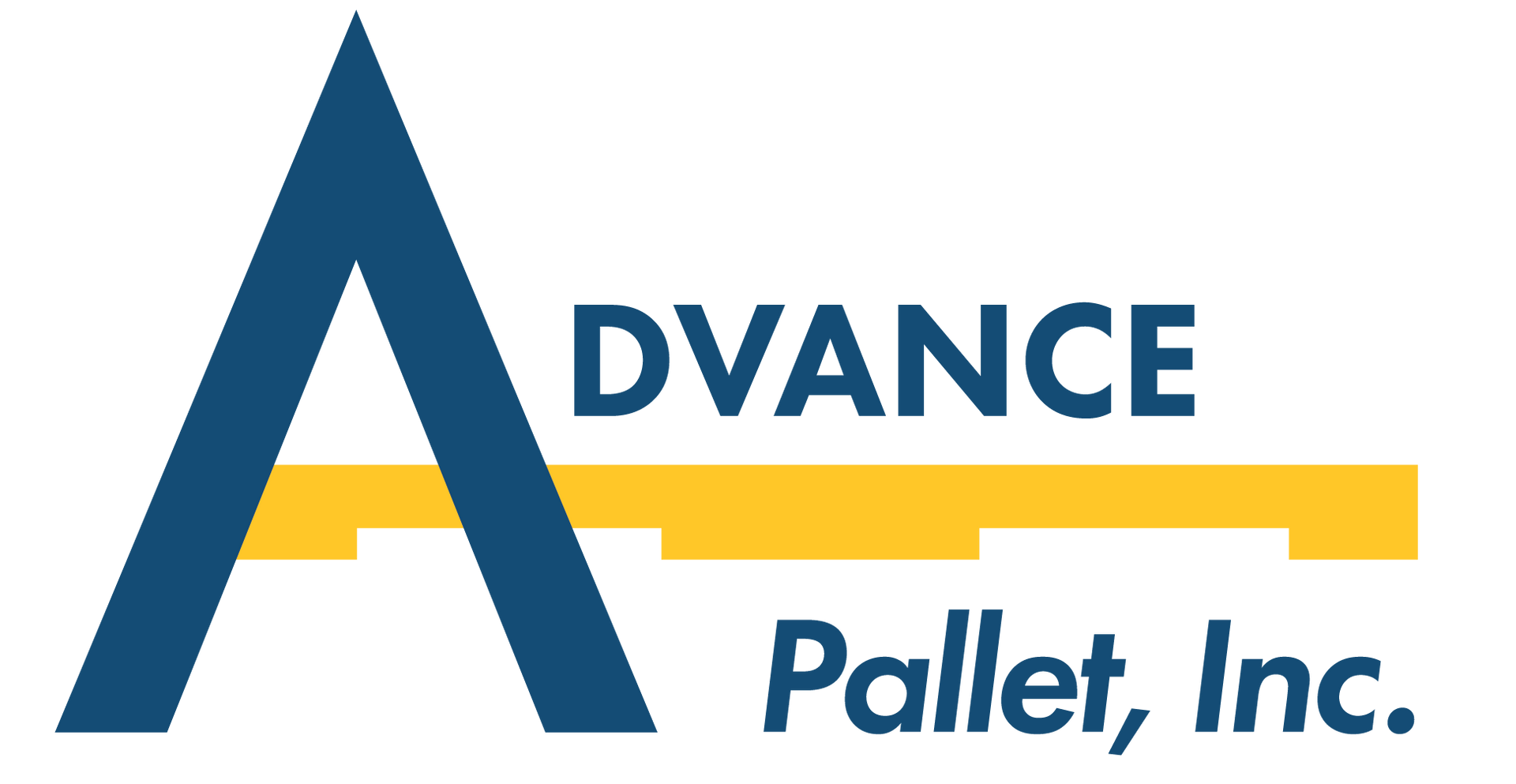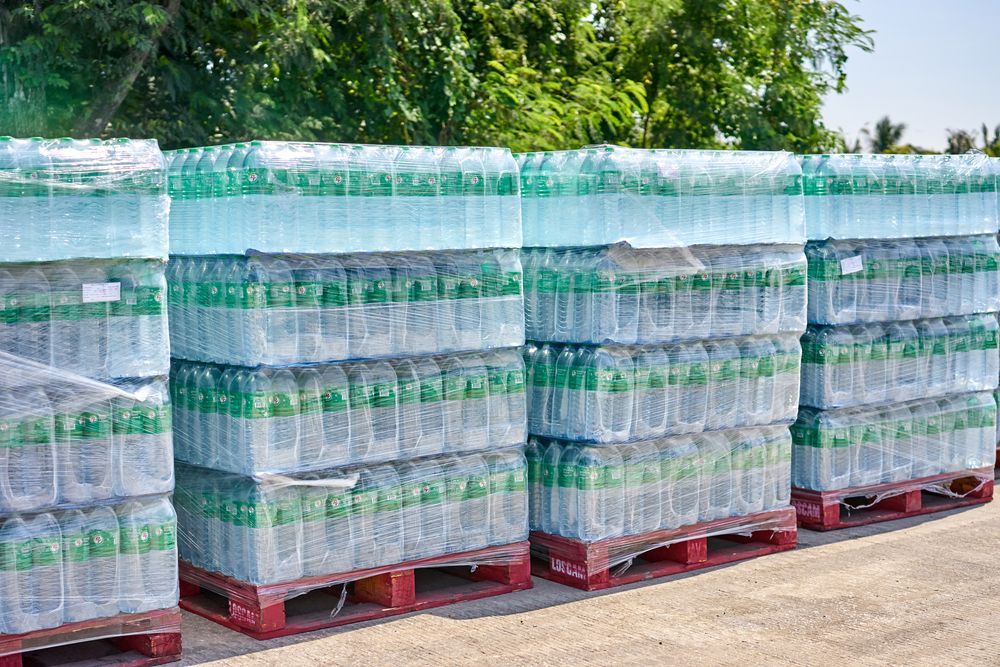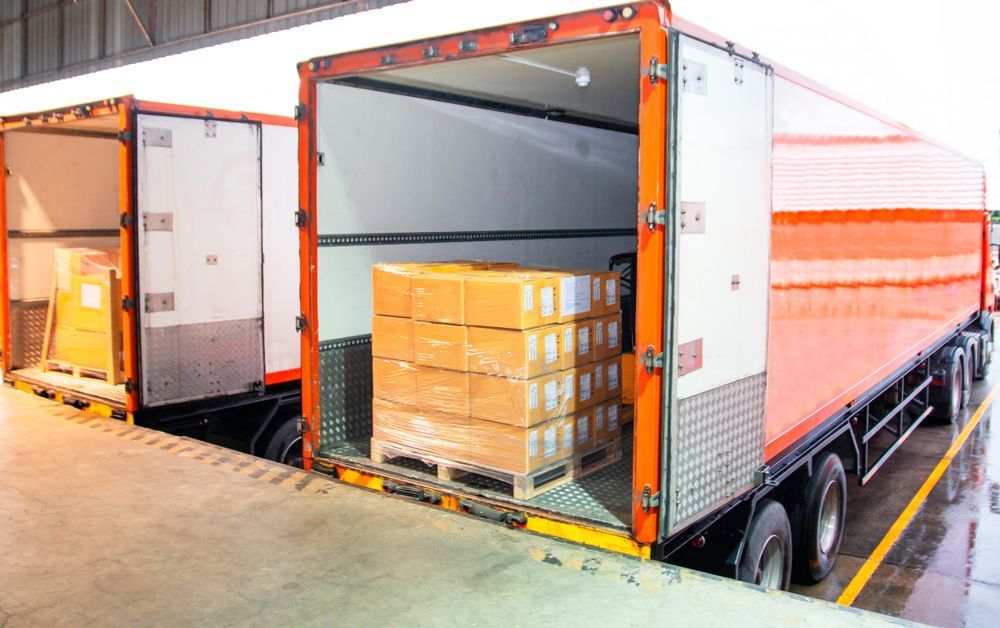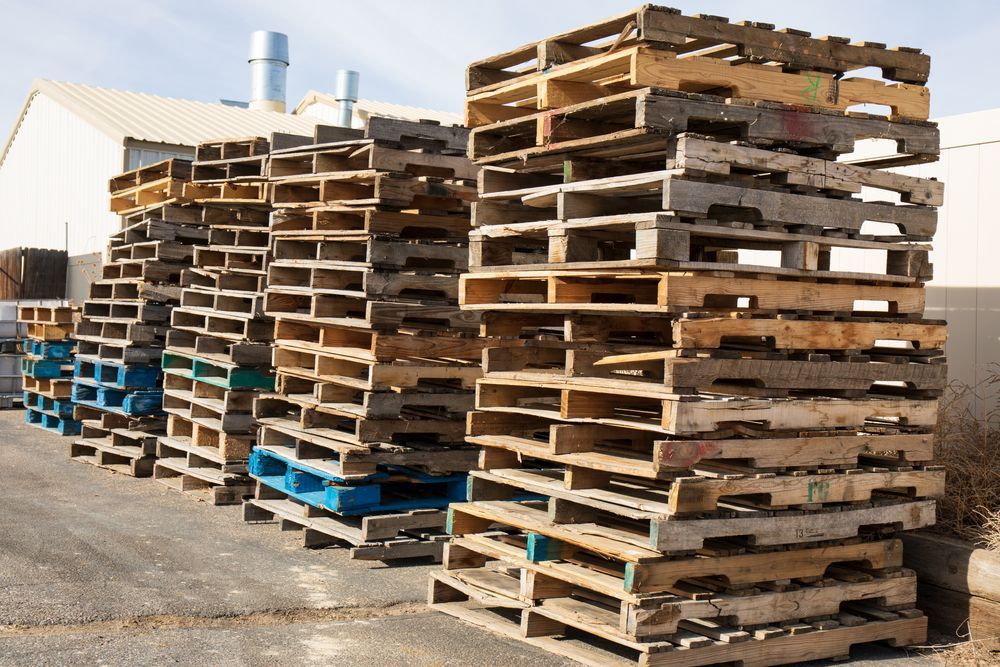Forklift vs Pallet Jack: What's the Difference?
Share this article:
Written by: Advance Pallet
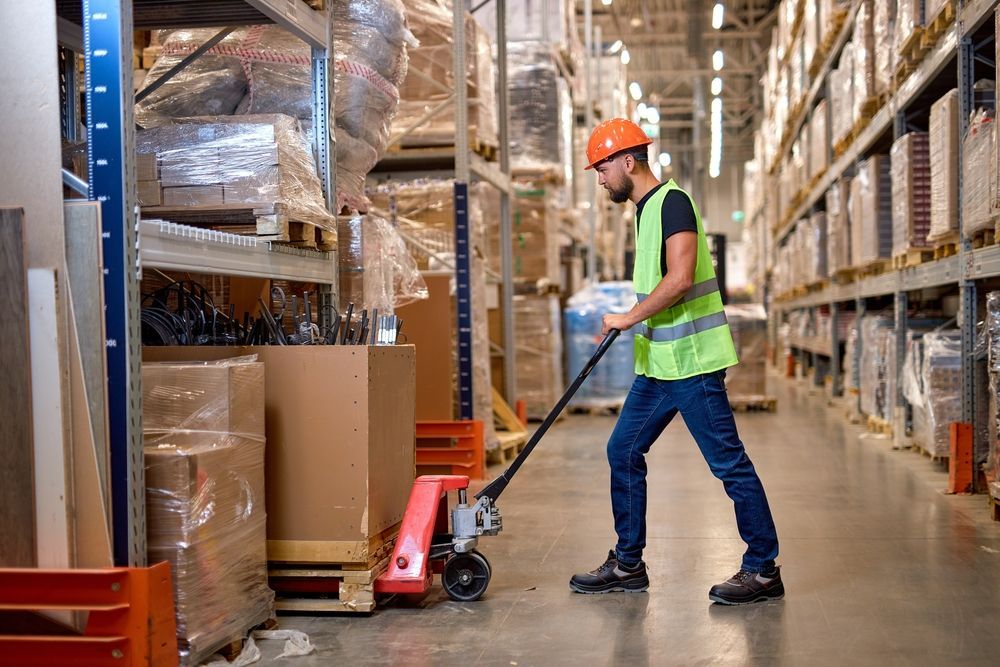
If you made a list of two of the most essential pieces of equipment in logistics, forklifts and pallet jacks would undoubtedly be right at the top. When you're in a warehouse, there are a lot of goods that need to be moved as safely and as efficiently as possible. Forklifts and pallet jacks are hugely beneficial to that end.
Yet at the same time, while they're similar in many ways, they're also very different in others. Figuring out which one is right for your specific job requires you to understand exactly what you need from the task at hand.
What is a Forklift?
If you've ever been in a large warehouse, you've likely seen a forklift. It's a mid-sized industrial vehicle with two forks that you drive, almost like you would a car. You can position the forks in front of a pallet, lift the pallet, and place your load where it needs to go.
There are a few different types of forklift options available for you to choose from, including electric, diesel, and even traditional gas-powered units.
What is a Pallet Jack?
If a forklift is something that you drive, a pallet jack is something that you push or pull. They serve the same basic concept, in that you have a set of forks and a hydraulic lift that are used to raise and lower pallets. But pallet jacks are much smaller and, because of that, they're much more maneuverable as well.
Manual Pallet Jack
A manual pallet jack is exactly what it sounds like - a model that the operator is in total control over. Not only do you have to pump the handle to raise or lower the forks, but you also have to steer and position the pallet jack as well.
Think of these as your "basic" pallet jacks. They're cost-effective, they're great for warehouse environments that may be smaller (or at least less busy) than alternatives, and they also require far less training to safely use as well.
Electric Pallet Jack
Also commonly referred to as a powered pallet jack, this type of electric pallet jack has an electric motor to assist with both lifting and moving pallets.
Electric pallet jacks are still smaller than forklifts, but they are larger than fully manual pallet jacks. They're perfect for reducing the type of physical strain that operators tend to experience when using manual pallet jacks all day. You tend to see these in larger environments where frequent pallet movement is a part of daily life.
Do You Need a License to Operate a Forklift or Pallet Jack?
Operating a manual pallet jack does not typically require a license, largely because they're so straightforward. In the case of an electric pallet jack, this can vary depending on the industry. Sometimes, you need to have some form of training, but it is a far cry from what you could expect before you're allowed to operate a forklift.
Generally speaking, using a forklift requires not only specialized training but certification as well. A forklift can be incredibly dangerous if it isn't handled properly due to its size alone. Certification in particular helps to make sure that all operators understand safety protocols and best practices, and that they're competent in handling the forklift - especially in an environment where other people will regularly be working.
Advantages of a Forklift
The number one advantage of a forklift in almost any situation is that it has a higher load capacity than its pallet jack counterparts. If you're in a large warehouse environment that is moving a lot of heavy machinery, in particular, a forklift may be the only option available to you. It's not that it would take too much time to move things with a pallet jack - depending on the weight, it may literally be impossible.
A forklift also has a far greater lift height than even an electric pallet jack. If you need to take something from the first floor and move it up several rows high on a tall shelf in a warehouse, a forklift is absolutely how you'll need to do it.
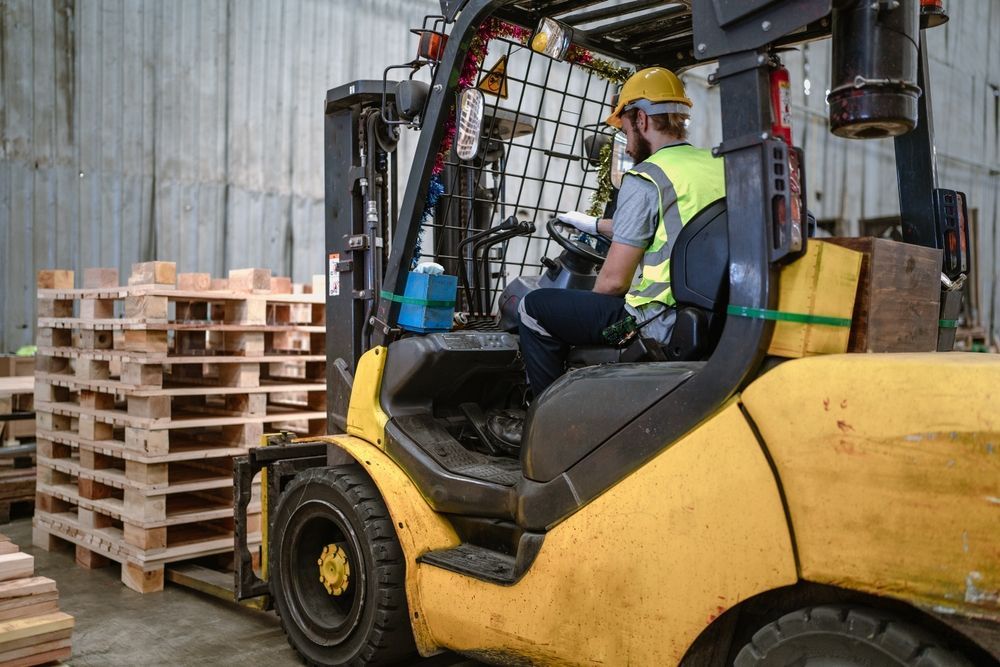
Disadvantages of a Forklift
The number one disadvantage of using a forklift, on the other hand, has to do with cost. As one would expect, forklifts are incredibly expensive and need to be cared for and maintained like any other piece of equipment. Not every employee within a business will be able to operate one, either. Only people who go through the proper training and certification process will be allowed to do so.
Advantages of a Pallet Jack
The biggest advantage of a pallet jack is that it is cost-effective. They are far less expensive to purchase and there are virtually no maintenance requirements because they're designed to be as heavy-duty as possible. They're also so easy that just about anyone can use them - even employees who may have never been in a warehouse before.
Disadvantages of a Pallet Jack
From a logistics perspective, the biggest disadvantage of a pallet jack has to do with its limited load capacity. They simply cannot handle as much weight as a forklift can, nor can they reach the same lift height. They also tend to be far slower than forklifts, especially if you're talking about a manual model.
How to Choose Between a Forklift & Pallet Jack
Ultimately, choosing between a forklift and a pallet jack will come down to the specific requirements of not only the job you're currently working on but also how your warehouse operates on a regular basis. You'll want to think about your load requirements, the operational space you have to work with, the distance your equipment needs to travel (and how frequently), and more.
Typically, the heavier the load, the more likely you are to need a forklift - but again, this will all change on a case-by-case basis.
If you'd like to find out more information about the intricacies of a forklift vs pallet jack, or if you're just looking to discuss your business' own needs with a team of professionals in a bit more detail, please contact Advance Pallet today.

